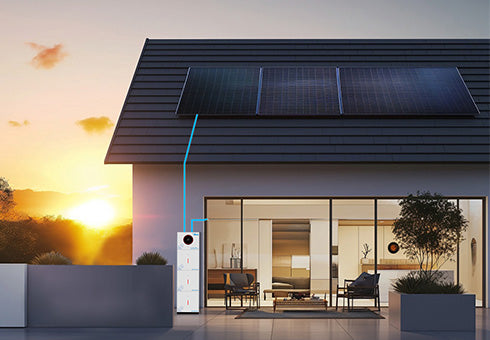Unlock the Power of the Sun: Your Ultimate Guide to Choosing the Perfect Solar Generator!
In recent years, solar energy has transformed from a niche interest into a mainstream solution for households aiming to reduce their carbon footprint and save on energy costs. As the world becomes more eco-conscious, the demand for household solar generators is on the rise. These devices harness sunlight to provide clean, renewable energy, offering numerous benefits, including sustainability, significant cost savings over time, and a greater sense of energy independence. This article aims to guide you through the process of selecting the best household solar generator for your needs, ensuring you make an informed decision that aligns with your lifestyle and budget.

Understanding Household Solar Generators
A household solar generator is a device that converts sunlight into electrical energy for residential use. At its core, it consists of three main components: solar panels, batteries, and inverters. The solar panels capture sunlight and convert it into direct current (DC) electricity. This electricity is then stored in batteries for later use, ensuring you have power even when the sun isn't shining. The inverter plays a crucial role by converting the stored DC electricity into alternating current (AC), which is what most home appliances require. Unlike traditional gas-powered generators, which emit harmful pollutants and rely on fossil fuels, solar generators are clean and quiet, making them an ideal choice for eco-friendly households. They are particularly advantageous during power outages or for those living in off-grid locations, providing a reliable energy source without the noise and fumes associated with conventional generators.
Key Factors to Consider When Choosing a Solar Generator
When selecting a solar generator for your home, several key factors should be taken into account. First and foremost, consider the power output, which is typically measured in watts. This will determine how many devices you can run simultaneously. Next, evaluate the battery capacity, which is measured in watt-hours (Wh). A higher capacity means your generator can store more energy for use later. Portability is another important factor; if you plan to use your generator for camping or outdoor activities, a lightweight and compact design may be essential. Additionally, examine the charging options available. Some generators can be charged via solar panels, wall outlets, or car chargers, providing versatility in how you keep your generator powered. Each of these factors plays a vital role in ensuring the generator meets your household needs, whether for emergency backup or everyday use.
Types of Solar Generators Available
There are various types of solar generators available on the market, each designed to cater to different needs. Portable solar generators are compact and easy to transport, making them perfect for camping trips or outdoor events. They offer convenience but may have lower power output compared to larger systems. Home backup systems are designed to provide power to your entire home during outages, with higher capacity and power output, but they tend to be more expensive and require a more complex setup. Off-grid solar solutions are ideal for those looking to live completely independently from the traditional power grid. These systems often include a combination of solar panels, batteries, and inverters, allowing for full customization based on your energy needs. Each type has its pros and cons, so it's essential to evaluate what best suits your lifestyle and energy requirements before making a purchase.
Comparing Prices and Features
When it comes to comparing solar generators, it's crucial to look beyond just the price tag. Start by evaluating the features that matter most to you, such as power output, battery capacity, and portability. Understanding these specifications will help you assess the value for money each product offers. Look for generators that provide a good balance between quality and price; sometimes, spending a bit more upfront can lead to greater savings in the long run due to durability and efficiency. Reviews from other users can also provide insights into the performance and reliability of different models. By taking the time to compare various options, you can make a more informed decision that aligns with your specific needs and budget.
Final Thoughts on Choosing a Solar Generator
In summary, choosing the right household solar generator requires careful consideration of various factors, including power output, battery capacity, portability, and type. It's essential to conduct thorough research and weigh your specific energy needs against the features offered by different models. By doing so, you can ensure that your investment not only meets your current requirements but also supports your long-term energy goals. Remember, the transition to solar energy is not just about purchasing a generator; it's about embracing a more sustainable and independent lifestyle. So, take your time, explore your options, and choose wisely for a brighter, greener future.








